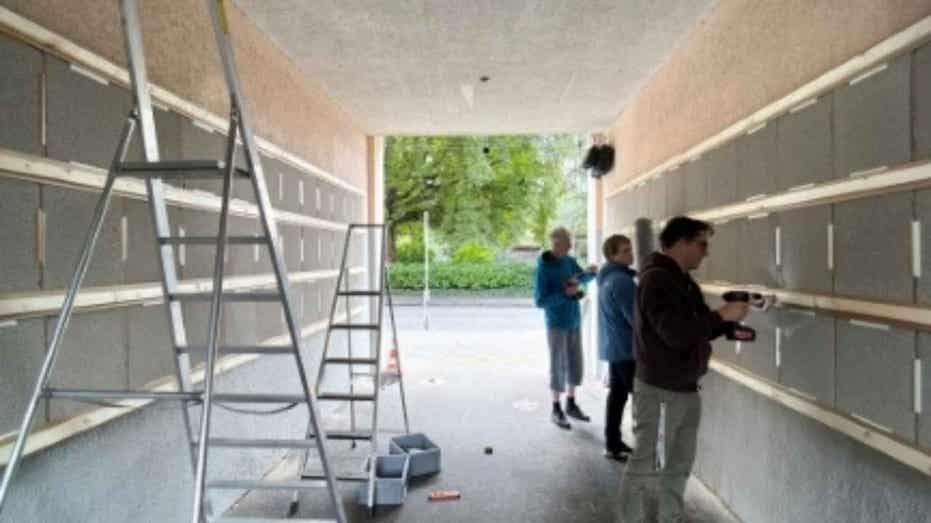Ultra-thin sound blocker cuts traffic noise dramatically

Breakthrough in Noise Reduction: Ultra-Thin Panels for Urban Environments
Living near busy streets can be a constant challenge due to persistent traffic noise. Fortunately, a recent innovation from Switzerland promises to bring much-needed relief. Researchers at the Swiss Federal Laboratories for Materials Science and Technology (EMPA) have developed an ultra-thin sound-absorbing material that offers significant noise reduction without occupying much space. This advancement could revolutionize how we manage urban noise pollution.
Innovative Material Design for Maximum Efficiency in Minimal Space
The new noise absorber measures only about 2.1 inches in thickness but performs comparably to much bulkier traditional materials like rock wool insulation. Its compact design makes it ideal for various applications, both indoors and outdoors, where space is limited. What sets this technology apart is its ability to be customized to target specific noise frequencies, enhancing its versatility across different environments.
Advanced Composition and Functionality
The secret lies in the material’s unique multi-layered mineral foam structure, made from gypsum or cement. Each layer contains pores of varying sizes, deliberately designed to make sound waves travel through winding paths rather than straight lines. This extended journey dissipates sound energy more effectively than flat or uniform insulation materials.
-
The Ultimate Guide to the Best Walking Pad & Under-Desk Treadmill: Reviews, Benefits, and the Incline vs. Traditional Treadmill Debate

-
Teenagers Turning to AI for Emotional Support: A Growing Concern

-
AI Dangers in the Spotlight: Chatbot Controversy and Its Implications

-
First Look at Pennywise’s Origins in HBO’s “IT: Welcome to Derry” Trailer

Using sophisticated numerical modeling, EMPA scientists can predict how sound will behave within the material. By adjusting pore sizes, perforation patterns, and layer thickness, they fine-tune the absorber’s performance to meet specific acoustic challenges. Whether it’s reducing noise in quiet stairwells or dampening the hustle of busy office spaces, this technology adapts seamlessly.
Real-World Testing Demonstrates Promising Results
To evaluate its effectiveness, EMPA researchers installed a prototype in Zurich, covering approximately 130 square feet of wall with panels just over 2 inches thick. One side of the wall faced a bustling street, while the other led into a quieter courtyard.
The outcome was immediate: traffic noise levels dropped by up to 4 decibels. This reduction is noticeable enough to lessen the irritability caused by urban noise, especially during vehicle entry and exit. In practical terms, a 4-decibel decrease can significantly improve comfort and concentration in noisy settings.
Designed for Versatile and Sustainable Use
A key advantage of these panels is their minimal spatial footprint. Unlike traditional insulation that can take up valuable room, this ultra-thin, dense material allows architects and designers more freedom to incorporate noise reduction features without sacrificing space.
Additionally, the panels are weather-resistant, fireproof, and made from recyclable materials. They are safe for indoor environments, including schools, offices, and apartments, as they do not emit harmful particles. Their durability ensures long-term performance in various external conditions.
Challenges and Future Prospects
Despite the promising performance, the current manufacturing process involves manual perforation, which limits scalability and increases production time. To address this, EMPA is collaborating with Swiss manufacturer De Cavis to automate the process, aiming to bring this innovative material to wider markets. Once fully automated, these panels could become standard in construction projects prioritizing both space efficiency and noise control.
Transforming Urban Living and Building Design
For individuals dealing with constant background noise—be it from traffic, neighboring businesses, or shared walls—this technology offers a game-changing solution. Its slim profile means you can enjoy peace and quiet without sacrificing valuable space in your home or workspace.
Whether used to quiet a bedroom wall, upgrade soundproofing in apartment complexes, or enhance the acoustic comfort of new office buildings, this material opens up exciting possibilities previously limited by the bulkiness of traditional insulation.
Beyond Noise Reduction: Environmentally Friendly and Durable
The panels are designed to withstand outdoor elements, making them suitable for exterior applications. They are weatherproof, fire-resistant, and environmentally friendly, being produced from recyclable materials with no harmful emissions. This combination of durability and safety makes them suitable for various settings where long-term performance is essential.
Potential Impact on Future Construction and Urban Living
While further development is needed to optimize manufacturing, the prospects are promising. The ability to integrate highly effective, space-saving soundproofing solutions could soon become a standard feature in construction, helping to create quieter cities, homes, and workplaces.
If a simple, thin panel could halve the traffic noise outside your window, would you choose to install it? Your feedback and ideas are welcome, as this technology moves closer to mainstream adoption.
Stay updated with the latest in tech and soundproofing innovations by subscribing to my free reports. Get expert tips, security alerts, and exclusive deals delivered directly to your inbox. Plus, gain instant access to my comprehensive Scam Survival Guide — all when you join the newsletter.
